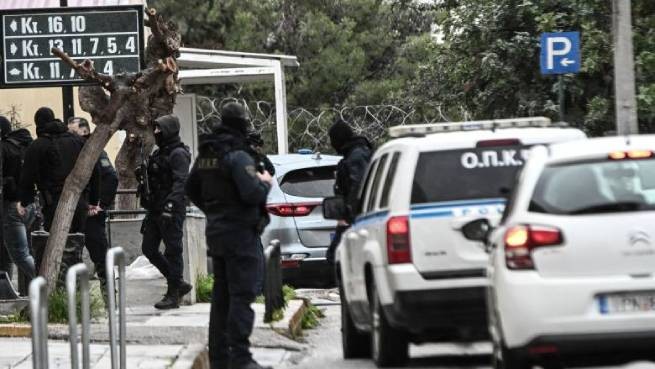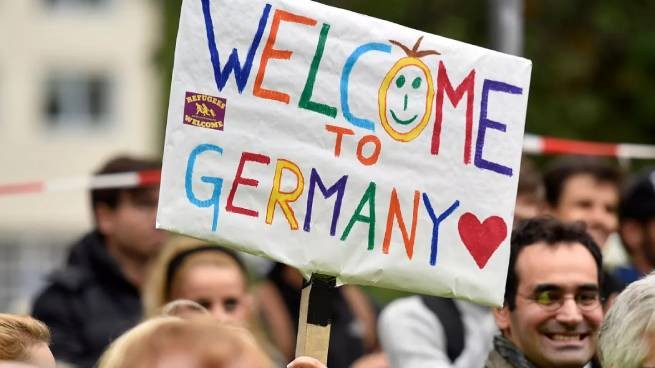Olaf Scholz, after two defeats for his coalition in local elections, took a hard line on migration. He proposes to deport “refuseniks” en masse, i.e. those who are denied refugee status.
Under the leadership of Angela Merkel, against the background of general panic in European countries during the migration crisis of 2015-2016, Germany opened its doors wide to a huge number of migrants. As part of the Willkommenskultur (welcoming culture) policy, the country has received more than 1.2 million asylum seekers. The level of illegal migration in Europe is increasing again, but Germany is no longer happy with migrants and is reviewing measures for their reception and integration. In a recent interview with Der Spiegel, Chancellor Olaf Scholz stated:
“We are restricting illegal migration to Germany. Too many people are coming to us. Deportations must happen more often and faster.”
He said that Germany should begin “en masse” to deport migrants who do not have the right to be in the country, writes euronews. Just days later, the federal government approved a bill to speed up the deportation of undocumented migrants who had previously been denied asylum.
Political scientist and member of the SPD Core Values Commission Michael Bröning notes that this is a huge change for Germany and Social Democrat Scholz – he was expected to continue Angela Merkel’s policies in this area:
“There has been a marked shift in rhetoric and policy with the clear goal of reducing migration levels. Proposed steps include easing deportations, tougher sanctions for traffickers, reintroducing temporary border controls, further bilateral agreements with the countries where migrants come from the most, and expanding the list of countries considered safe. Overall, this is a dramatic change in policy and is the end of Germany’s unique ‘culture of hospitality’ seen in 2015.”
During a visit to Nigeria this week, Scholz asked its president Bola Tinubu for help in tackling rising migration, offering a partnership similar to the one Italian Prime Minister Giorgia Meloni struck with Tunisia earlier this year. The idea is to expand migration centers in Nigeria where German deportees could find shelter, health care and work. The Prime Minister of Italy has just concluded with Albania.
Scholz’s initiative comes as a confirmation of his and the government’s tougher approach to illegal migration after the ruling coalition performed poorly in two regional elections earlier this month. In both regions, conservatives won, and the far right made significant gains. However, Bröning believes that “it is impossible to say whether such a change in direction will lead to an increase in support for the government” in the upcoming elections:
“The German public wants the government to act. It is also important to understand that policy change is not happening in a vacuum, but against the backdrop of a growing challenge from Germany’s far right.”
Meanwhile, Germany has stepped up police controls along “smuggling routes,” especially on the borders with Poland and the Czech Republic, to prevent more migrants from entering the country. Scholz is now under intense pressure to curb the rise in the number of asylum seekers in the country as dissatisfaction with the government’s handling of the refugee situation increases.
A recent ARD DeutschlandTrend poll found that 44% of Germans consider illegal immigration to be Germany’s most important political issue that politicians should prioritize. Michael Bröning notes:
“Concerns about uncontrolled immigration have long been a major driver of right-wing populism. The challenge is to manage the crisis without jeopardizing either the stability of the coalition government or internal party cohesion. It is clear that not all Social Democrats and Greens are happy with the proposals changes, so I think it’s fair to say we’re just at the beginning of the discussion.”
https://www.youtube.com/watch?v=YLPRGWj7U7s
In 2015, as Europe tightened border controls, cheering crowds of Germans could be seen welcoming thousands of migrants arriving into the country from the Middle East. According to Bröning, there is now a widespread belief among the German public that migration rates must decline, “and the reaction to the current escalation in the Middle East has played an important – and unexpected – role here.” However, even though the chancellor has changed his policy, “many Germans are still in favor of taking in those in need,” he says:
“Pro-Palestinian rallies, a spate of anti-Semitic incidents and celebrations of Hamas attacks in some high-immigration areas were stark reminders that all is not well with integration into modern Western society. In many ways, it opened the door to more balanced debate.”
Previously, our publication wrote about how 7 Russians were in Bremen (Germany) attacked for 4 Ukrainians.







More Stories
Paris: wild clashes between police and "black" block
Modern Germans are far from the most hardworking in Europe
Georgia: Opposition leaders were brutally beaten by security forces (video)